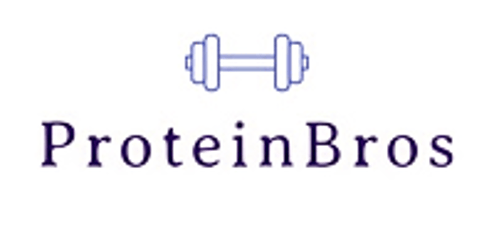The truth about natural vitamins: Which supplements are essential for optimal health
Vitamins and supplements line store shelves, promising better health and vitality. But which ones truly deliver on those claims? Many people take supplements without understanding their real effects. Learn more here!
12/23/20249 min read
Vitamins and supplements line store shelves, promising better health and vitality. But which ones truly deliver on those claims? Many people take supplements without understanding their real effects.
Most healthy adults can get adequate nutrition from a balanced diet alone, without needing vitamin supplements. However, certain groups may benefit from specific vitamin and mineral supplements, including pregnant women, older adults, and those with restricted diets or medical conditions.
Navigating the world of vitamins and supplements can be confusing. This article examines the scientific evidence behind common supplements and provides guidance on which ones may be worth considering. We'll explore the latest research to separate fact from fiction when it comes to natural vitamins and supplements.
Understanding Vitamins and Their Natural Sources
Vitamins play essential roles in maintaining health and supporting bodily functions. They can be obtained from various food sources and supplements.
Defining Natural Vitamins
Natural vitamins are organic compounds found in whole foods. They occur in complex forms, often accompanied by cofactors and enzymes that aid absorption and utilization. Fruits, vegetables, nuts, seeds, and animal products contain natural vitamins.
For example, oranges provide vitamin C, while leafy greens offer vitamin K. Eggs are rich in B vitamins, and fatty fish supply vitamin D. Natural vitamins are typically more bioavailable than their synthetic counterparts.
Some natural vitamins exist in multiple forms. Vitamin E, for instance, includes eight different compounds: four tocopherols and four tocotrienols.
Comparing Synthetic Versus Natural Vitamins
Synthetic vitamins are laboratory-created compounds designed to mimic natural vitamins. They are often isolated, single-chemical entities. While synthetic vitamins can be effective, they may lack the supporting nutrients found in whole foods.
Absorption rates can differ between synthetic and natural vitamins. Natural vitamin E is absorbed twice as efficiently as its synthetic form. Synthetic folic acid, however, is more readily absorbed than natural folate.
Synthetic vitamins are often more stable and have longer shelf lives. They're also easier to standardize in supplements. Natural vitamins, though, come packaged with other beneficial nutrients and phytochemicals.
Some synthetic vitamins, like B12, are molecularly identical to their natural counterparts. Others, like vitamin E, have slightly different structures.
Assessing the Bioavailability of Natural Supplements
Bioavailability plays a crucial role in determining the effectiveness of natural supplements. Understanding how the body absorbs and utilizes nutrients from these supplements is essential for maximizing their benefits.
Factors Affecting Nutrient Absorption
The absorption of nutrients from natural supplements depends on several key factors. Chemical form of the nutrient significantly impacts its bioavailability. For example, calcium carbonate is less absorbable than calcium citrate.
Nutrient interactions can either enhance or inhibit absorption. Iron absorption increases when taken with vitamin C, while calcium can interfere with iron absorption.
Individual health status affects nutrient absorption. Certain medical conditions, such as celiac disease or inflammatory bowel disorders, can impair nutrient uptake.
Age also plays a role, as the body's ability to absorb certain nutrients may decrease with age. Older adults often have reduced stomach acid production, affecting vitamin B12 absorption.
Enhancing Nutrient Bioavailability
Several strategies can improve the bioavailability of natural supplements. Proper timing of supplement intake is crucial. Fat-soluble vitamins (A, D, E, K) are best absorbed when taken with a meal containing healthy fats.
Combining complementary nutrients can boost absorption. For instance, taking vitamin D with calcium enhances the absorption of both nutrients.
Choosing the right formulation is essential. Liquid or sublingual forms of some supplements may offer better absorption than pills or capsules.
Addressing underlying health issues that affect nutrient absorption can improve supplement efficacy. Treating conditions like hypochlorhydria (low stomach acid) may enhance overall nutrient uptake.
Essential Vitamins and the Recommended Daily Intake
Vitamins play crucial roles in maintaining health and bodily functions. Proper intake of both fat-soluble and water-soluble vitamins is essential for optimal wellness.
Fat-Soluble Vitamins
Fat-soluble vitamins include A, D, E, and K. These vitamins are stored in the body's fatty tissues and liver.
Vitamin A supports vision, immune function, and cell growth. The recommended daily intake for adults is 700-900 micrograms. Good sources include sweet potatoes, carrots, and spinach.
Vitamin D aids calcium absorption and bone health. Adults need 600-800 IU daily. Sunlight exposure and fatty fish are primary sources.
Vitamin E acts as an antioxidant. Adults should consume 15 mg daily. Nuts, seeds, and vegetable oils are rich in vitamin E.
Vitamin K is essential for blood clotting. The daily recommendation is 90-120 micrograms for adults. Leafy greens and broccoli are excellent sources.
Water-Soluble Vitamins
Water-soluble vitamins include B-complex vitamins and vitamin C. These are not stored in the body and require regular replenishment.
B vitamins support energy metabolism and nerve function. Daily needs vary:
B1 (Thiamine): 1.1-1.2 mg
B2 (Riboflavin): 1.1-1.3 mg
B3 (Niacin): 14-16 mg
B6: 1.3-1.7 mg
B12: 2.4 micrograms
Whole grains, legumes, and lean meats are good sources of B vitamins.
Vitamin C is an antioxidant that supports immune function. Adults need 65-90 mg daily. Citrus fruits, berries, and bell peppers are rich in vitamin C.
Folate is crucial for DNA synthesis. Adults require 400 micrograms daily. Leafy greens and fortified grains are primary sources.
The Role of Antioxidants and Phytochemicals in Supplementation
Antioxidants and phytochemicals play crucial roles in protecting cells and promoting overall health. These compounds offer potential benefits when consumed through diet or supplements.
Understanding Antioxidants
Antioxidants are molecules that neutralize harmful free radicals in the body. Free radicals can damage cells and contribute to various health issues.
Common antioxidants include vitamins C and E, beta-carotene, and selenium. These compounds can be found in fruits, vegetables, and certain supplements.
Research suggests that antioxidants may help reduce the risk of chronic diseases like heart disease and certain cancers. They also support immune function and may slow the aging process.
While antioxidant supplements are popular, it's important to note that excessive intake can sometimes have negative effects. Consuming a variety of antioxidant-rich foods is generally considered the safest approach.
Benefits of Phytochemicals
Phytochemicals are naturally occurring compounds found in plants. They offer various health benefits and often work synergistically with antioxidants.
Examples of phytochemicals include flavonoids, carotenoids, and glucosinolates. These compounds are abundant in fruits, vegetables, whole grains, and legumes.
Studies indicate that phytochemicals may help:
Reduce inflammation
Support heart health
Boost immune function
Protect against certain cancers
While phytochemical supplements exist, experts generally recommend obtaining these compounds through a balanced diet rich in plant-based foods.
Consuming a diverse range of colorful fruits and vegetables ensures intake of various beneficial phytochemicals. This approach provides the added benefits of fiber, vitamins, and minerals found in whole foods.
The Impact of Diet on Vitamin Absorption
Diet plays a crucial role in how effectively our bodies absorb and utilize vitamins. The foods we consume can enhance or hinder vitamin absorption, influencing overall nutritional status.
The Importance of a Balanced Diet
A balanced diet provides a wide range of nutrients that work synergistically to support vitamin absorption. Certain food combinations can boost the body's ability to absorb specific vitamins.
For example, vitamin C enhances iron absorption from plant-based sources. Pairing iron-rich foods like spinach with vitamin C-rich foods like citrus fruits can improve iron uptake.
Fat-soluble vitamins (A, D, E, and K) require dietary fat for optimal absorption. Including healthy fats in meals containing these vitamins can significantly improve their bioavailability.
Fiber, while beneficial for digestive health, can sometimes interfere with vitamin absorption. Moderation is key to ensure a balance between fiber intake and nutrient absorption.
Common Dietary Deficiencies
Despite the abundance of food in many parts of the world, vitamin deficiencies remain prevalent. Several factors contribute to these deficiencies:
Poor diet quality
Restrictive eating patterns
Limited food variety
Vitamin D deficiency is common, especially in regions with limited sunlight exposure. Dietary sources of vitamin D are limited, making supplementation often necessary.
Iron deficiency is another widespread concern, particularly among women of reproductive age and vegetarians. Careful meal planning can help address this issue.
B12 deficiency is prevalent in vegetarian and vegan diets, as B12 is primarily found in animal products. Fortified foods or supplements are often recommended for these populations.
Inadequate intake of fruits and vegetables can lead to deficiencies in vitamins C and A. Encouraging a diet rich in colorful produce can help prevent these shortfalls.
Safety and Efficacy of Vitamin Supplementation
Vitamin supplementation involves potential risks and benefits that consumers should carefully consider. Regulatory standards aim to ensure product quality and safety, though gaps remain in oversight.
Potential Risks and Side Effects
Excessive intake of certain vitamins can lead to adverse effects. Fat-soluble vitamins A, D, E, and K can accumulate to toxic levels when consumed in large amounts. Vitamin A toxicity may cause headaches, blurred vision, and liver damage.
High doses of vitamin D can result in hypercalcemia, leading to kidney stones and heart problems. Excessive vitamin E intake might increase bleeding risk, especially for those on blood thinners.
Water-soluble vitamins like B and C are generally safer, as excess is excreted through urine. However, very high doses of vitamin C may cause digestive issues and kidney stones in some individuals.
Navigating Regulatory Standards
The FDA regulates dietary supplements as food products, not medications. This classification means less stringent oversight compared to pharmaceuticals.
Manufacturers are responsible for ensuring product safety and label accuracy. The FDA can take action against unsafe products after they reach the market.
Third-party testing organizations like USP and NSF International offer voluntary certification programs. These verify product purity, potency, and manufacturing practices.
Consumers should look for supplements with third-party certifications and research brands carefully. It's crucial to consult healthcare providers before starting any new supplement regimen, especially for those with existing health conditions or taking medications.
Consumer Guidance: Choosing Quality Supplements
Selecting high-quality supplements requires careful evaluation of brands and understanding product labels. These steps help consumers make informed decisions about which supplements to purchase and use.
Evaluating Supplement Brands
Look for brands with a strong reputation and positive customer reviews. Check if the company follows Good Manufacturing Practices (GMP) certified by third-party organizations. Research the brand's history, scientific backing, and transparency in sourcing ingredients.
Avoid companies with a history of recalls or regulatory issues. Be cautious of brands making exaggerated health claims or those lacking clear contact information. Compare prices, but remember that the cheapest option may not always be the best quality.
Consider brands that conduct and publish their own research or collaborate with independent scientists. This demonstrates a commitment to product efficacy and safety.
We have listed some of our most trusted brands below!
1. Nordic Naturals
2. Natures made
3. Bronsons
4. Designs for health
Understanding Labels and Certifications
Read supplement labels carefully to identify key information. Look for the following details:
Active ingredients and their amounts
Inactive ingredients or fillers
Recommended dosage
Expiration date
Lot number for traceability
Seek products with third-party certifications, such as:
USP (United States Pharmacopeia)
NSF International
Consumer Lab
These certifications indicate that the product has been tested for purity, potency, and quality. They also verify that the supplement contains the ingredients listed on the label in the stated amounts.
Be aware of allergen information and potential interactions with medications. If uncertain, consult a healthcare professional before starting any new supplement regimen.
Integrating Supplements into Your Wellness Routine
Incorporating supplements into a daily wellness routine requires careful consideration and planning. Consistency is key when taking vitamins and minerals to maximize their benefits.
It's advisable to take supplements with food to enhance absorption and reduce the risk of stomach upset. Some nutrients are best absorbed when paired with specific foods or other supplements.
Morning routine: Take water-soluble vitamins like B-complex and vitamin C with breakfast. These provide energy and support immune function throughout the day.
Midday routine: Consider taking fat-soluble vitamins (A, D, E, K) with a meal containing healthy fats for optimal absorption.
Evening routine: Minerals like calcium and magnesium can be taken before bed, as they may promote relaxation and better sleep.
Always follow the recommended dosage on the product label or as advised by a healthcare professional. Keeping supplements in a visible location or using a pill organizer can help maintain a consistent routine.
Regular check-ins with a doctor or nutritionist are essential to assess the effectiveness of supplement regimens. Blood tests can reveal deficiencies or excesses, allowing for necessary adjustments.
It's important to remember that supplements should complement a balanced diet, not replace whole foods. A varied, nutrient-rich diet remains the foundation of good health.
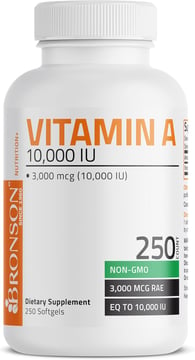

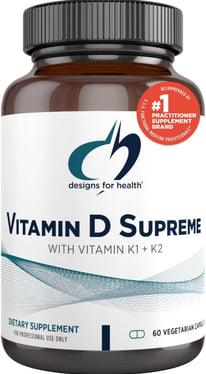

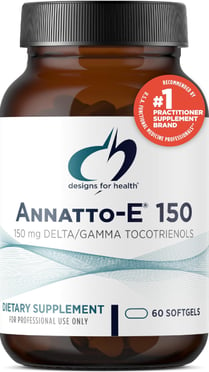

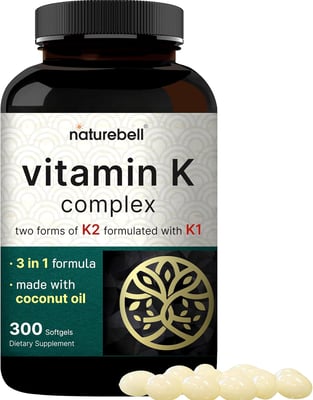


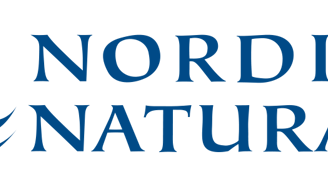




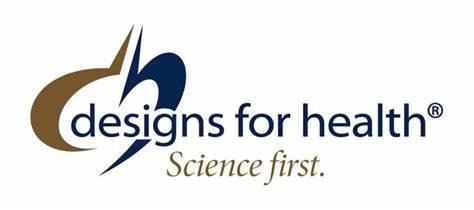

Additional info
Social media coming soon!
Contact us
Newsletter coming soon!
© 2024. All rights reserved.
